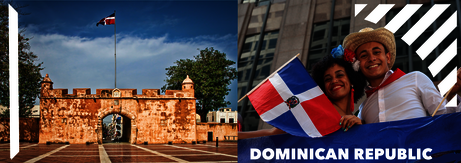Summary of operations
Road Infrastructure: Financing for 148 kilometers of highways.
Energy: Financing for the generation of 80 megawatts of clean renewable energy.
Agro Sector: US$ 60 million for the strengthening of the agricultural sector with a sustainable technological approach.
A 228% increase in the amount estimated in the 2021-2026 country strategy, reaching US$ 1.8 billion. In the previous five-year period the disbursement amounted US$ 533.9 million.
PROJECTS

Coral Highway Project
It consisted of the construction of a 70-kilometer-long, 4-lane highway, for which financing of US$70.0 million was allocated.
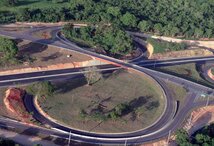
Improvement and Expansion of the Eastern Road Corridor for road sections
San Pedro de Macorís-La Romana Section, La Romana Beltway Section and Eastern Tourist Boulevard Section, totaling 78 kilometers in length and representing the best road infrastructure in the country.
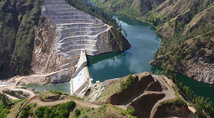
Palomino Hydroelectric Project
With a clean and renewable energy generation capacity of 80 megawatts, it is located in the Province of San Juan. For its execution, the Bank allocated financing for a total amount of US$ 130.0 million
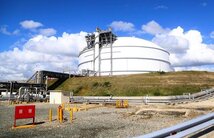
Construction of a 50-kilometer gas pipeline in San Pedro de Macorís
Loan in favor of AES Dominicana for a total amount of US$54.00 million.
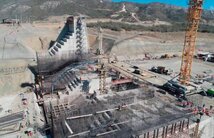
Montegrande Multipurpose Dam Project Phase III
With current financing of US$249.6 million
Contributing to Nicaragua's socio-economic development, CABEI approves US$200 million in 2022

With the support of the multilateral, important projects were completed, such as the Chinandega Departmental Hospital, the expansion of highways, the improvement and expansion of the electricity transmission system, and social housing projects, among others.
Managua, January 19th, 2023. - The purpose of the financing granted by the Central American Bank for Economic Integration (CABEI) for US$200 million in 2022 as part of its Temporary Support Program for the Fuel Crisis was to protect the purchasing power of more than 6 million Nicaraguans, as well as the different productive activities developed in the country.
Of the amount approved, US$45 million had already been disbursed by December 31st of last year, with a positive and direct impact on the Nicaraguan population, since by mitigating the increase in fuel prices, the cost of basic goods, services and transportation could be controlled, thus providing greater financial stability to the population in the midst of the world crisis.
"This approval in 2022 is in addition to the completion of some of CABEI's most important projects, such as the Chinandega Departmental Hospital, the expansion of highways, the improvement and expansion of the electricity transmission system, and social housing projects, among others aimed at improving the quality of life of Nicaraguans and contributing to boosting the competitiveness of our founding member country," said CABEI Executive President, Dr. Dante Mossi.
Also in 2022, Nicaragua was approved for emergency non-reimbursable financial cooperation for US$500,000 in solidarity with Nicaraguan families affected by the damage caused by Hurricane Julia; and disbursements were made in the amount of US$467.7 million, of which more than 96% (US$453.5 million) went to the public sector for productive infrastructure projects (54%) and to promote the human development of Nicaraguans and social infrastructure (39%). Meanwhile, US$14.2 million was disbursed to the private sector for financial intermediation and economic reactivation of micro, small, and medium-size enterprises (MSMEs).
It should be noted that CABEI takes the corresponding measures to ensure due diligence in all stages of its projects. In this regard, disbursements are carried out in accordance with the supervision, follow-up and control activities for the adequate use of resources, as well as the Bank's procurement policies, which include the contracting of independent supervision and auditing, allowing for close and continuous follow-up by internal and external control entities.
Likewise, CABEI has adopted as a basic principle zero tolerance for Prohibited Practices, unethical situations or non-compliance with regulations, for which reason it maintains at its disposal the means to file complaints, where natural or legal persons may do so.

